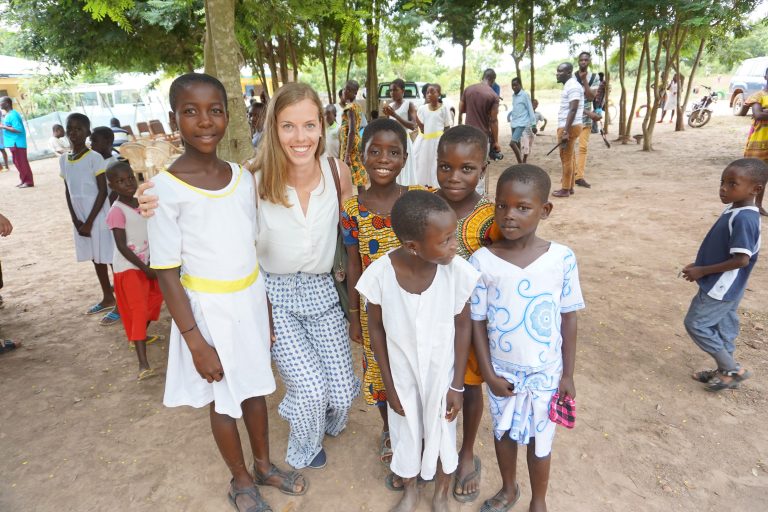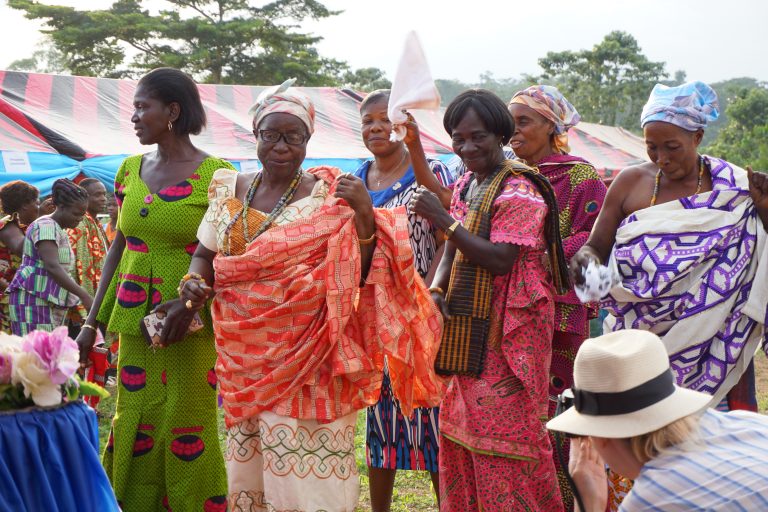Partnership with the Hunger Project
The Web Manuals Foundation’s main purpose is that of giving young women in developing countries access to education and opportunities to entrepreneurship with the overarching objective of eradicating poverty and support the spread of democracy in the world.
As a first investment in line with the purpose of the foundation, the Web Manuals Foundation entered into a three-year partnership with The Hunger Project; a global not-for-profit organization working to end hunger and poverty by creating innovative and sustainable development strategies at grass-root level, focusing on women. The Hunger Project has established over 200 development centers (epicenters) in Africa, Latin America and Asia.
During 2017, board member Julia Larsson participated in an investor’s trip organized by The Hunger Project to a couple of epicenters in Ghana, Africa. The main purpose of the trip was to study the methods of The Hunger Project to understand how the Web Manuals Foundation could manage its own initiatives in the future by focusing on eliminating inequalities, changing people’s mindset, strengthening their self esteem and thereby supporting communities to grow and develop by themselves.
Below she shares her experience and insights from the trip.
It was truly impressive to see and hear about the villagers’ devotion and willingness to change their life to the better. With the right mindset, a lot can be achieved by very few means. I have never encountered such level of pride as when the women shared their life stories and told us what they had accomplished with the help of the epicenter. In some cases they had been granted a microcredit to start a small business, resulting in an economically independent life, or been able to accumulate enough savings for their children’s school attendance.


Another memorable moment was when we participated in a fairly new program in one of the epicenters. It is an educational program for young girls and boys that aims to educate them in child marriage, children’s rights, and gender roles. The girls presented one thing they had learnt during the course of the program. No older than eight-twelve years of age, they were determined that education was more important than to get married. Some agreed that having children before a completed education would lead to a lower chance of becoming self-reliant. Others already knew what they wanted to study and become – a doctor, and the president of Ghana.
September 10th 2020
Julia Larsson